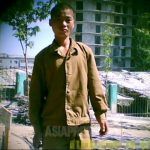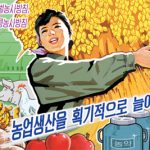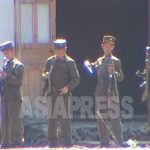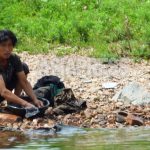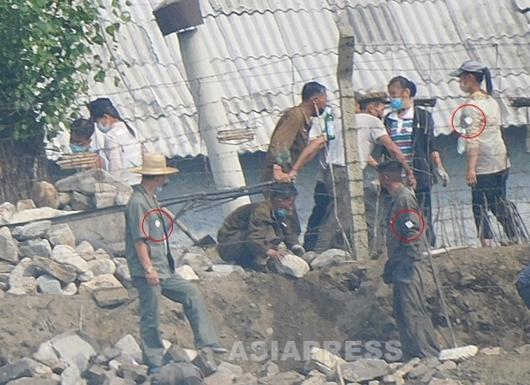
Kim Jong-un announced the “20×10 Policy for Rural Development” during a January 15 speech. The policy aims to bridge the gap between the capital and the provinces and between urban and rural areas. In the speech, he ordered the construction of modern factories in 20 counties every year for the next 10 years. In the northern part of North Hamgyong Province, the selection of laborers for the construction projects was completed in late February, and construction is expected to begin in early March. However, anxiety about food supply is already spreading among local people. (By KANG Ji-won / ISHIMARU Jiro)
◆ Workers required to prepare their own work clothes, shovels and pickaxes
In late February, ASIAPRESS investigated the progress of the mobilization in Musan County, North Hamgyong Province. Musan County is home to the largest iron mine in North Korea. According to a reporting partner living in Musan, more than 300 people have been selected to work at the mine in Musan, as well as in Gyongsong and Orang counties, both areas that have been selected for the construction of the new plants.
"More than 300 people have been selected from the Musan mine alone. This is the total number of 'party members' and 'mine shock troop units,' plus those who volunteered. They were to prepare themselves by the end of February and go to the construction site by train at the beginning of March.
“Workers are required to bring their own tools for construction, such as blankets, overalls, work boots, shovels, pickaxes, crowbars, and ropes, all at personal expense. They were also issued ‘food suspension’ papers.”
Shock troop units: Specialized civil engineering organizations mobilized for national construction projects. There are two types: "permanent" units, recruited mainly from the Youth League and serving for about three years, and "temporary" units, recruited for projects from workplaces and party members.
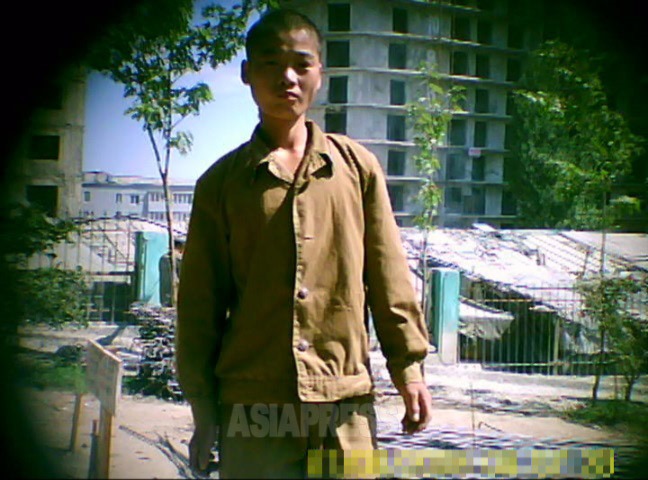
◆ How will workers and their families receive food?
What are “food suspension” papers?
In North Korea, the rule is that you receive food rations from one workplace. If workers are mobilized to another area, they must submit a certificate to the site they are mobilized to stating that they have stopped receiving food from their previous workplace. Only then can they resume receiving rations.
Workers mobilized for the construction of the factory will be provided with meals at the mobilization site if they carry a 'food suspension' document issued by Musan Mine. However, there are already many complaints about how the food will be provided to the workers.
"At Musan Mine, the food rationed to the workers is only for themselves, and at most, it is good for just five to seven days a month. There is no food for the workers’ families. When they are mobilized to build a factory, they can eat three meals a day at the site. It was decided that Musan Mine would pay for 15 days of food and the government would pay for the rest."
◆ Worker unrest spreads even before mobilizations begin
The move has caused a stir among the workers. Those who are not mobilized to build the factory and remain in the mines are worried that their rations will be reduced to the amount of daily meals given to those who are mobilized.
"We can't make money in the markets, so most of us live on the rations we get at work and the food sold at the state-run grain shops. Everyone is very sensitive to the amount of food they get from their workplace," the reporting partner said.
Since the pandemic began in 2020, the Kim regime has severely restricted private economic activity. It has banned the sale of rice and corn in markets and severely restricted the buying and selling of consumer goods. Meanwhile, it has reinstated food rationing for businesses, albeit in smaller quantities, and has occasionally sold food at state-run grain shops.
Urban residents, whose cash income has plummeted, have no choice but to rely on rationing and the state-run shops for food.
"There are many people who criticize and complain that (the government) wants to focus on building factories when it can't even provide food. Even the Musan Mine workers who were mobilized fed their children and families porridge with the little food they were given, and many of them are worried about what will happen to their families after they are mobilized to the construction site.”
Workers are expected to rotate out of the construction site every six months.
※ ASIAPRESS communicates with reporting partners through Chinese cell phones smuggled into North Korea.
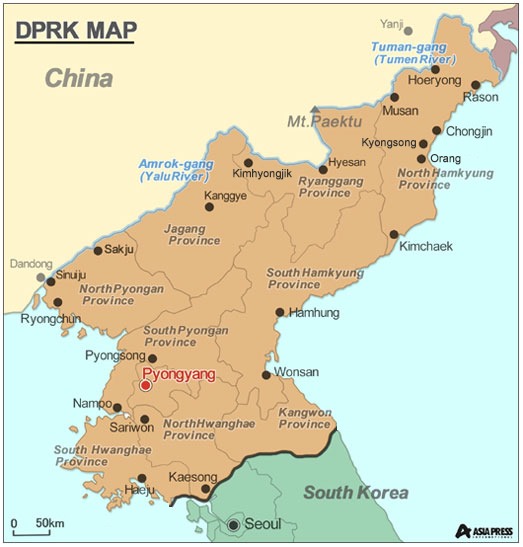
- <Inside N. Korea> Efforts to implement the“20x10 policy for regional development” begin…As people are mobilized to construction projects, complaints start to emerge
- <Inside N. Korea> Wigs, fake eyelashes emerge as a driver of exports abroad, but laborers work in very poor conditions
- <Inside N. Korea> Kim Jong-il birthday festivities smaller than in the past…special rations reduced due to lack of funds…focus more on labor mobilizations, with some events canceled
- <Inside N. Korea> S.Korea is the enemy…Trends after Kim Jong Un’s “anti-unification policy” announcement (1) People are surprised and confused
- <Inside N. Korea> Lack of foreign exchange leads to drop in RMB…Provincial trading companies can’t trade with China due to lack of foreign cash

